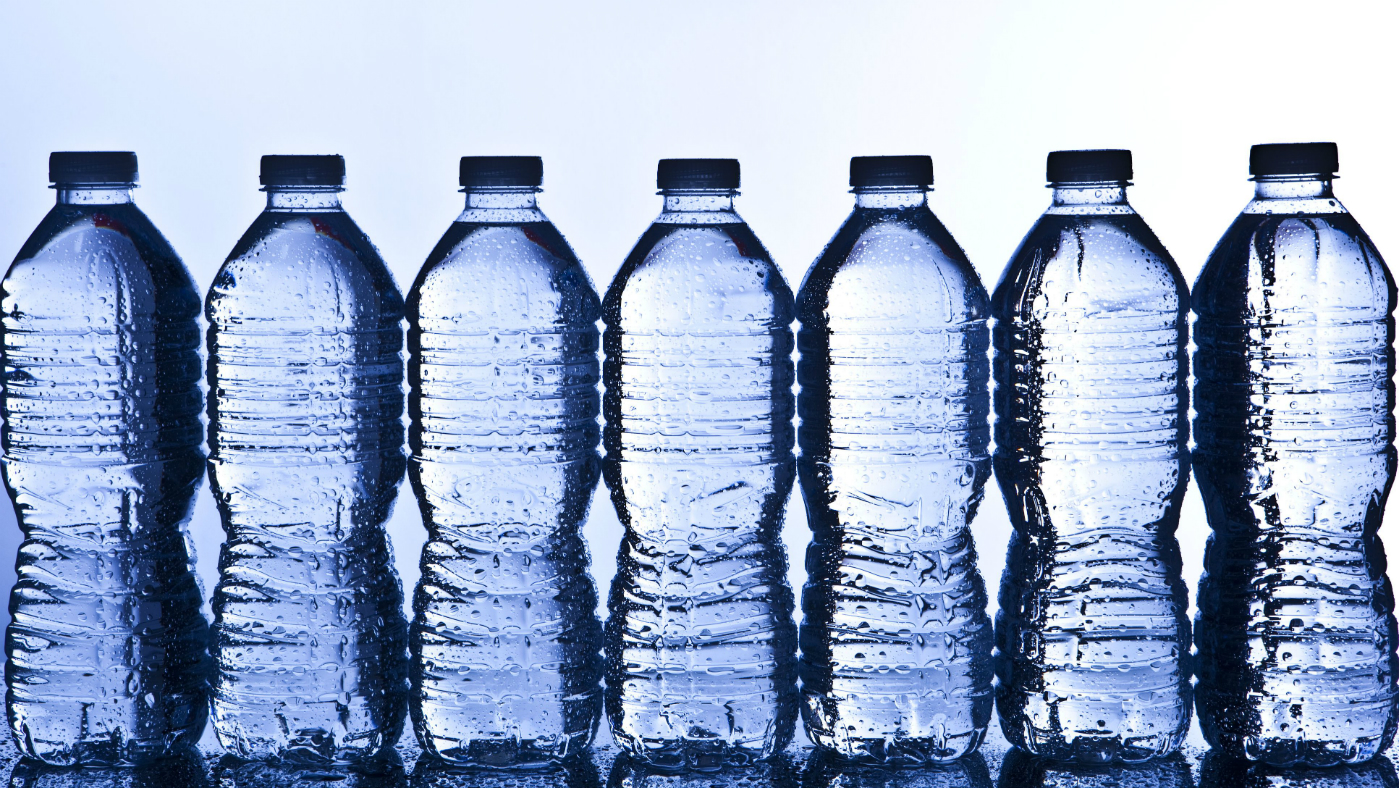90% of bottled water ‘contains microplastics’
Researchers find levels of plastic fibres in popular bottled water brands could be twice as high as those found in tap water

A free daily email with the biggest news stories of the day – and the best features from TheWeek.com
You are now subscribed
Your newsletter sign-up was successful
A new study has found that 90% of bottled water is contaminated with microplastics, raising concerns about the potential health impact of drinking water bought from shops.
Thought to be the largest study of its kind, scientists examined more than 250 bottles of water from 11 different brands from around the world and found “almost all were contaminated to some degree”.
Scientists based at the State University of New York in Fredonia were commissioned by journalism project Orb Media to analyse the bottled water.
The Week
Escape your echo chamber. Get the facts behind the news, plus analysis from multiple perspectives.

Sign up for The Week's Free Newsletters
From our morning news briefing to a weekly Good News Newsletter, get the best of The Week delivered directly to your inbox.
From our morning news briefing to a weekly Good News Newsletter, get the best of The Week delivered directly to your inbox.
The scientists wrote they had “found roughly twice as many plastic particles within bottled water” compared with their previous study of tap water.
According to the new study, the most common type of plastic fragment found was polypropylene - the same type of plastic used to make bottle caps. The bottles analysed were bought in the US, China, Brazil, India, Indonesia, Mexico, Lebanon, Kenya and Thailand.
Plastic was identified in 93% of the samples, which “included major name brands such as Aqua, Aquafina, Dasani, Evian, Nestle Pure Life and San Pellegrino”, says Yahoo News.
Dr Andrew Mayes, who led the study, said: “We are becoming increasingly aware of microplastics in the environment and their potentially harmful effects, but their prevalence in other areas has been much less studied.”
A free daily email with the biggest news stories of the day – and the best features from TheWeek.com
“They have been reported in tap water, beer and many other foods, but I think that people will be surprised that almost all bottled water appears to be contaminated too.”
Experts cautioned that the extent of the risk to human health posed by such contamination remains unclear.
“There are connections to increases in certain kinds of cancer to lower sperm count to increases in conditions like ADHD and autism,” said Mason.
“We know that they are connected to these synthetic chemicals in the environment and we know that plastics are providing kind of a means to get those chemicals into our bodies.”
One of the affected companies, Coca-Cola, told the BBC it had strict filtration methods, but acknowledged the ubiquity of plastics in the environment meant plastic fibres “may be found at minute levels even in highly treated products”.
-
 ‘Restaurateurs have become millionaires’
‘Restaurateurs have become millionaires’Instant Opinion Opinion, comment and editorials of the day
-
 Earth is rapidly approaching a ‘hothouse’ trajectory of warming
Earth is rapidly approaching a ‘hothouse’ trajectory of warmingThe explainer It may become impossible to fix
-
 Health insurance: Premiums soar as ACA subsidies end
Health insurance: Premiums soar as ACA subsidies endFeature 1.4 million people have dropped coverage
-
 Epstein files topple law CEO, roil UK government
Epstein files topple law CEO, roil UK governmentSpeed Read Peter Mandelson, Britain’s former ambassador to the US, is caught up in the scandal
-
 Iran and US prepare to meet after skirmishes
Iran and US prepare to meet after skirmishesSpeed Read The incident comes amid heightened tensions in the Middle East
-
 Israel retrieves final hostage’s body from Gaza
Israel retrieves final hostage’s body from GazaSpeed Read The 24-year-old police officer was killed during the initial Hamas attack
-
 China’s Xi targets top general in growing purge
China’s Xi targets top general in growing purgeSpeed Read Zhang Youxia is being investigated over ‘grave violations’ of the law
-
 Panama and Canada are negotiating over a crucial copper mine
Panama and Canada are negotiating over a crucial copper mineIn the Spotlight Panama is set to make a final decision on the mine this summer
-
 Why Greenland’s natural resources are nearly impossible to mine
Why Greenland’s natural resources are nearly impossible to mineThe Explainer The country’s natural landscape makes the task extremely difficult
-
 Iran cuts internet as protests escalate
Iran cuts internet as protests escalateSpeed Reada Government buildings across the country have been set on fire
-
 US nabs ‘shadow’ tanker claimed by Russia
US nabs ‘shadow’ tanker claimed by RussiaSpeed Read The ship was one of two vessels seized by the US military